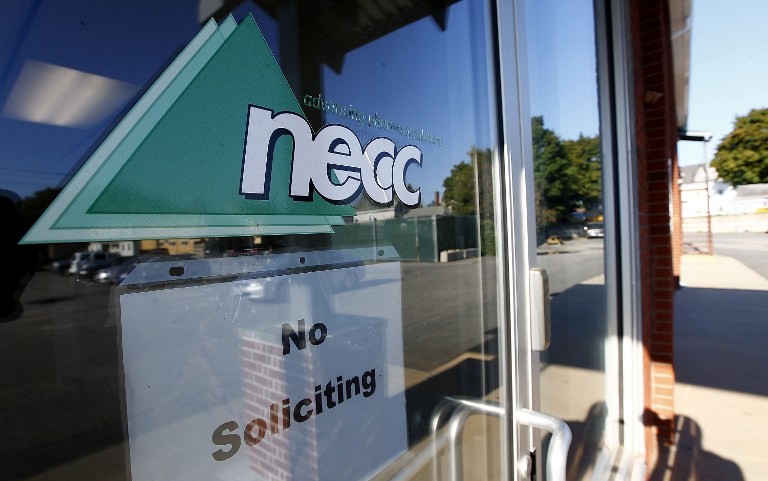SUMMARY
This is AI generated summarization, which may have errors. For context, always refer to the full article.

CHICAGO, United States – A deadly meningitis outbreak in the United States blamed on a tainted drug has triggered outrage and calls for tighter regulation of the loosely controlled pharmaceutical compounding industry.
At least a dozen people have died and the number of fungal meningitis cases rose to 137 Wednesday, October 10, after a contaminated drug was shipped to clinics and hospitals in 23 states.
Investigators say as many as 13,000 people may have received contaminated doses of the steroid, which is injected into the spine to treat back pain.
Critics said drug manufacturers have found a way to sidestep costly and strict oversight by classifying themselves as pharmacies, which are given freer rein to mix drug compounds for patients.
“People are just playing Russian roulette when they use one of these compounded drugs,” said Sheldon Bradshaw, a Washington lawyer who was chief counsel for the Food and Drug Administration from 2005 to 2007.
“They don’t have to follow good manufacturing practices which, if followed, guarantee that a product isn’t going to be contaminated. They don’t have to spend hundreds of millions on clinical trials to show their drugs are safe,” he told AFP.
The problem could be far more widespread than feared because, unlike manufacturers of FDA-approved drugs, pharmacies are not required to report adverse reactions or injuries.
And many doctors don’t realize the drugs they are prescribing are not produced at facilities that have received the FDA’s seal of approval.
The looser regulations were intended to allow pharmacists to fulfill their traditional role of tailoring a drug to suit a particular patient — say by mixing a lower dose of medicine with flavored syrup to make it suitable for a child — without having to deal with onerous requirements like clinical trials.
Yet they have created a “grey area in the law,” allowing a growing number of companies to produce compounds at an industrial scale, said Kevin Outterson, a professor of health law at the Boston University School of Law.
“It’s just a classic gap in the regulatory structure that companies have used to build this business over the past few decades,” Outterson said.
As a result, the FDA has more power to regulate drug companies in China than large-scale compounding pharmacies in the United States, he said.
State agencies are charged with regulating pharmacies, although the FDA typically steps in to investigate if a “significant violation” is reported.
Several lawmakers have already announced plans to introduce legislation that would strengthen oversight and others are asking the FDA for more immediate action.
“The recent outbreak of dangerous, potentially deadly disease indicates a clear and present need for stronger accountability and oversight,” Senator Richard Blumenthal said in a letter to the FDA.
The company that distributed thousands of vials of the tainted steroids — the New England Compounding Center — has been investigated by the state of Massachusetts and the FDA on at least two occasions in the past decade. It is also not accredited by a professional board.
It is not yet clear how the drugs were contaminated or why it took so long to discover the problem. Health officials are urging patients who received a dose as far back as May 21 to contact their doctors.
But the New England Compounding Center has recalled all of its products from the market and ceased operations.
The FDA declined to comment on whether an oversight failure or the loose regulation of pharmacy compounds contributed to the outbreak.
But an industry spokeswoman said it is clear the New England Compounding Center was not following the rules.
“There is regulation in place. Unfortunately, it looks like it just did not work in this particular situation,” said Dagmar Climo, a spokeswoman for the International Academy of Compounding Pharmacists.
“When the system is working, we should not be seeing these types of problems. Unfortunately, this was just a major oversight of an organization that was essentially manufacturing.”
Representatives from the academy will be meeting with lawmakers on Thursday to discuss ways “to make sure this never happens again,” Climo said.
However, she declined to comment on whether the group believes large-scale producers of compounds need to be better regulated. – Mira Oberman, Agence France-Presse
Add a comment
How does this make you feel?
There are no comments yet. Add your comment to start the conversation.